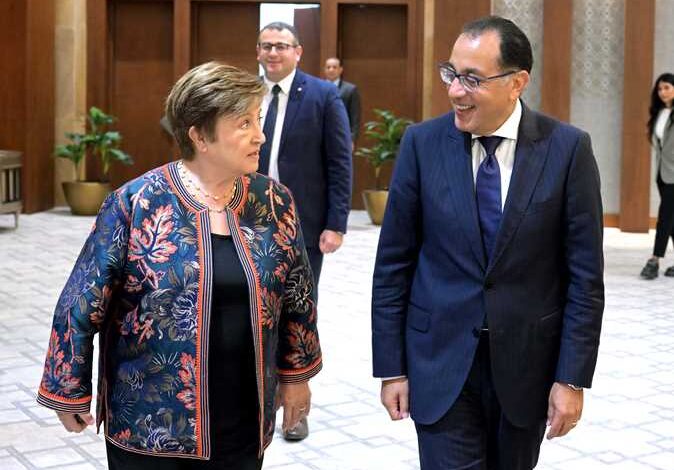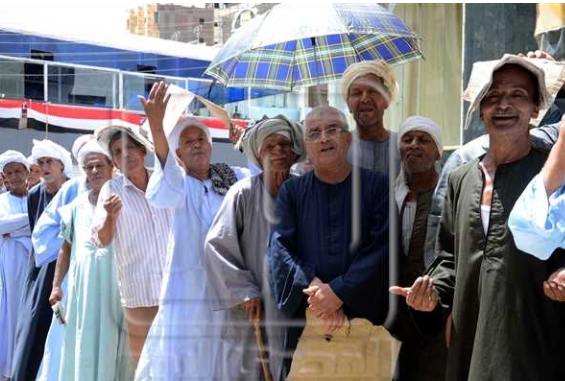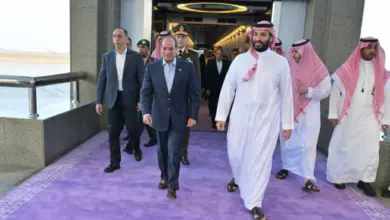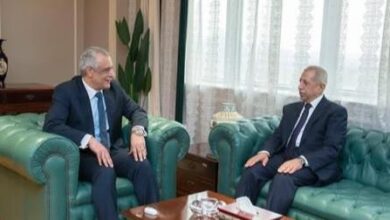
A mission from the International Monetary Fund (IMF), led by Ivana Vladkova Hollar, issued a statement at the conclusion of its visit to Egypt, which lasted from November 6-20.
During the visit, the mission conducted multiple intensive discussions with the Egyptian government regarding the economic and financial policies required to support the completion of the fourth review, under the Extended Fund Facility (EFF) program.
Hollar commended the Egyptian government’s efforts to boost its economy despite the significant challenges facing the region due to geopolitical tensions and economic shocks.
She affirmed that Egypt has taken tangible steps to maintain macroeconomic stability and enhance its ability to withstand crises, reflecting a strong commitment to the path of economic reform.
Over two weeks of intensive discussions, the mission worked with Egyptian officials to assess the progress made and identify the future steps needed to achieve the objectives of the economic program agreed upon under the EFF program.
What is required of Egypt in the coming phase?
- Continuing to control inflation sustainably to reach the medium-term target. This means maintaining a steady decrease in the rate at which prices for goods and services are rising.
- Adhering to tight monetary policies to curb inflationary pressures, especially given the impact of administered prices. This involves measures like increasing interest rates to make borrowing more expensive and reduce spending.
- Mobilizing financial resources through tax reforms aimed at increasing efficiency and tax fairness. This could involve broadening the tax base and improving tax collection.
- Reducing tax exemptions and expanding the tax base rather than increasing taxes. This means finding ways to increase government revenue without imposing higher tax rates on existing taxpayers.
- Strengthening support programs for the most vulnerable groups, especially in light of rising living costs and energy prices. This includes providing subsidies, social safety nets, and other forms of assistance.
- Improving conditional cash transfer programs to ensure the protection of the poor. These programs provide cash payments to poor families on the condition that they meet certain requirements, such as sending their children to school.
- Removing obstacles facing the private sector to make it the main engine of economic growth. This involves reducing bureaucracy, improving the business environment, and providing incentives for private investment.
- Simplifying customs procedures and the tax system to facilitate trade and investment. This will make it easier for businesses to operate in Egypt and attract foreign investment.
- Enhancing transparency in the energy sector to ensure its sustainability. This involves making information about the energy sector more accessible and accountable.
- Reducing reliance on debt and controlling the budget deficit. This includes finding ways to finance government spending without borrowing excessively and ensuring that government spending does not exceed revenue.
Key Outcomes of the IMF Mission Discussions
The IMF has commended Egypt’s efforts to unify the exchange rate since March, which has helped to eliminate the gap between supply and demand for foreign currency and reduce imports.
Discussions focused on mitigating the risks associated with climate change and the impact of geopolitical tensions in the region on Egypt. These tensions have significantly impacted the Suez Canal’s revenues, which have declined by up to 70 percent.
Additionally, the increasing number of refugees has put additional strain on public services, particularly health and education.
There was a consensus on the need to achieve sustainable economic stability through developing financial infrastructure, supporting long-term investments, and completing structural reforms to reduce reliance on international assistance and increase the Egyptian economy’s resilience to external shocks.
The mission concluded its statement by emphasizing that “strengthening the role of the private sector and implementing the agreed-upon economic reforms are crucial factors in achieving sustainable and inclusive economic growth.”
The IMF also announced that discussions will continue in the coming days to finalize the remaining policy agreements in preparation for concluding the fourth review.




